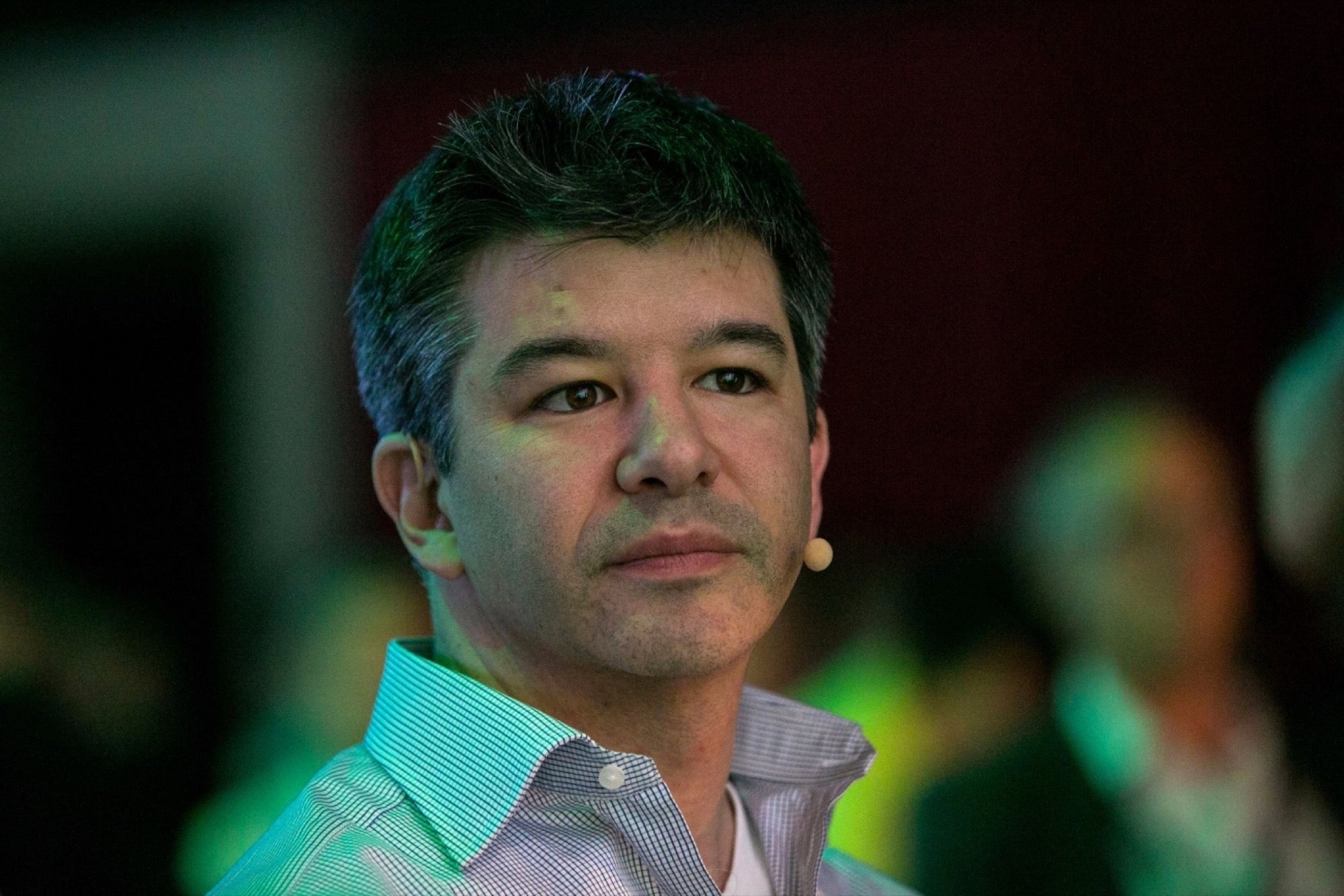Travis Kalanick Stepped Down, But Uber's Problems Won't Be Instantly Solved It's going to take a lot more to regain customer and employee trust than a symbolic resignation.
By Nina Zipkin

Travis Kalanick last week shared with Uber employees that he would be taking an indefinite leave of absence to grieve his mother's death and work on "Travis 2.0" in order to be "the leader that this company needs and that you deserve."
But just days later, after five of the company's investors called for his resignation, Kalanick stepped down yesterday from his post as CEO of the company he co-founded. He will continue to be a member of Uber's board of directors.
In a statement given to The New York Times, Kalanick said, "I love Uber more than anything in the world and at this difficult moment in my personal life I have accepted the investors' request to step aside so that Uber can go back to building rather than be distracted with another fight."
Related: 3 Lessons Every CEO Can Learn From Travis Kalanick's Emotional Meeting With Uber's Female Engineers
Over the last several months, Uber has weathered a myriad of crises.
The frequent calls to #DeleteUber. The protracted legal battle with Google parent company Alphabet over allegedly stolen self-driving technology. The allegations that Uber was using its technology to evade law enforcement. The firing of more than 20 employees and the complete overhaul of the company's culture in the wake of an investigation by a former U.S. attorney general into allegations of systemic sexual harassment and discrimination.
This was all on top of Uber's reputation as a callous, take-no-prisoners competitor. You would think that one of these incidents alone would be a chink in the company's armor, but the weight of all of them together was clearly too much for the current leadership to withstand.
Related: Uber Needs to Recreate its Company Culture. Here's What You Can Learn From Its Mistakes.
Uber co-founder Garrett Camp, who has not been involved with the day-to-day operations of the company in recent years, wrote a blog post about where he thought the company went wrong.
"Like many of you, recent events have left me upset and deeply reflective," he wrote. "All companies have growing pains. And because Uber grew so fast these growing pains are much more serious. Over the years we have neglected parts of our culture as we have focused on growth. We have failed to build some of the systems that every company needs to scale successfully. But what matters now is that we know what needs to be changed. We must update our core values, listen better to employees and riders, and prioritize our drivers."
Related: What Does Uber Need to Do to Fix Its Battered Reputation?
Back in March, Adam Galinsky, a professor of business and management at Columbia Business School in New York, told Entrepreneur that he believed a symbolic firing would have to take place before the company could truly move forward: "At some point Uber needs to let someone go who has acted in such a way that might have been consistent with the old culture but isn't consistent with the present."
Kalanick's resignation does signal that there is going to be a new guard at Uber. And Camp, whose role going forward remains unclear, wrote that he believes that "our business can have 10x the impact it has today -- once we have additional leadership and training in place, and evolve our culture to be more inclusive and respectful."
But even though Kalanick -- all that he represents of Uber's formerly hard-charging M.O. -- is no longer at the helm, it doesn't mean that Uber's problems are going to be instantly solved. They are still mired in legal issues and an entrenched culture that was built up over seven years and is not going be dismantled without a lot of hard work and accountability.
Here is Entrepreneur.com contributor Nathan Latka's take on the situation.
And we want to hear from you. Tell us what you think about Kalanick's resignation on Facebook and Twitter.












